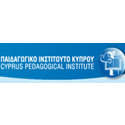Following this pandemic school education is going to change profoundly. The European Commission calls for the mobilization and participation of all in shaping the futures of education. There are no acceptable ready-made solutions, technological or otherwise in Education. “It is evident that we cannot return to the world as it was before this pandemic”. This is one of the strongest messages that we can pass to school leaders that witnessed more than 1.5 billion student’s learning hampered due to school closures.
History is being written with great speed and we are faced with choices and decisions that will define the futures of education. We have to learn from and support the responses coming from teachers, students and communities—for in them lies the potential for transforming education during and after the present crisis. These responses to the pandemic will be different from one place to another, from one context to another. We cannot accept the levels of inequality that have been permitted to emerge on our shared planet.
Education in a post-COVID world demonstrates that its impact is disparate and unjust. The magnitude of this challenge is clearly evident with regard to the digital divide in Africa. For example, only 11% of learners in sub-Saharan Africa have a household computer and only 18% have household internet, as compared to the 50% of learners globally who have computers in the home and the 57% who have access to internet. Already we see that the disruptions brought on by the pandemic are exacerbating inequalities both within and across countries. In addition, gender discrimination means that girls’ educational attainments are likely to suffer greatly, with a risk of many not returning to school post-COVID-19. This is not something we should accept; we must do everything in our power to prevent it.
COVID-19 has the potential to radically reshape our world. Education stakeholders must not passively sit back and observe what plays out. Now is the time for intelligent decisions collective actions.
In Cyprus, schools urgently need investment and structural change so that short-term setbacks do not grow into larger, long-lasting problems. There is a serious risk that COVID-19 will wipe out several decades of progress—most notably the progress that has been made in addressing accessing to technology and/or using technology to add value to teaching and learning.
Conclusion
The rational of this expert seminar connects current educational goals (as these inflicted by COVID 19 pandemic with the important educational goals as these were clearly specified by the United Nation’s TRANSFORMING OUR WORLD:THE 2030 AGENDA FOR SUSTAINABLE DEVELOPMENT
We need to design a humanistic vision of education and development within the United Nations human rights framework for Actions must strengthen education, fortify common goods and expand a global solidarity that emphasizes the collective responsibility for the education of everyone everywhere.
Schools in Cyprus need to join the learning revolution that is sweeping the globe by responding to this crisis and exploiting on the original and creative ideas coming from all corners of the world. Cypriot schools need to take lessons from the COVID-19 crisis. In fact, Cypriot schools must learn lessons from those global schools which shown the greatest resourcefulness and ingenuity in tackling the treads caused by COVID. Last but not least, Cypriot schools need to become inclusive collaborate openly and share recourses and experiences with local and global schools.
 Chryso ChristodoulouCEO – Founder
Chryso ChristodoulouCEO – Founder































